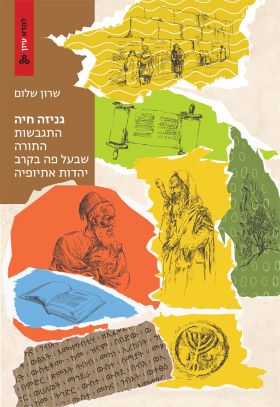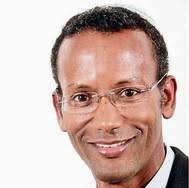Rabbi Dr. Sharon Zaude Shalom, the founding director of Ono Academic College’s International Center for the Study of Ethiopian Jewry, was interviewed on the Kan Heritage Radio Station by Mendy Bitan to discuss his new book entitled, “A Living Geniza (Old Book Repository)”. The book describes the unique process in which Ethiopian Jewry forged their own Oral Torah, as distinct from the that, characterized by the Mishna and Gemara, studied by adherents of Rabbinic Jewry, like Sefardim and Ashkenazim.
The interview began by describing Rabbi Dr. Sharon’s unique journey from a child in the village of Ethiopia to one of the premier researchers of Ethiopian Jewry in Israel today. He reviewed aspects of the new book, published by Lamda Scholarship, the imprint of Israel’s Open University. The oral tradition of Ethiopian Jews is 2500 years old. Like the oral tradition of rabbinic Jews, the Ethiopian “Torah Shebeal Peh (oral teaching)” can stand on its own and should not be undermined or underestimated, claims Rabbi Dr. Sharon.
Rabbi Dr. Sharon illustrated the practical relationship of Ethiopian Jewry with contemporary Jewish law, in light of the divergent oral traditions, choosing an example of the law regarding eating milk and chicken together. Ethiopian Jewish “halacha (Jewish law)” permits it. While Rabbinic Judaism forbids eating chicken together with milk, a discussion in Mishna Hulin seems to indicate that the scholar Rabbi Yossi Haglili may have permitted it. Rabbi Dr. Sharon said that the majority of the customs practiced by Ethiopian Jewry and forbidden by contemporary Jewish law, were included in the Talmud.
On a personal level, Rabbi Dr. Sharon said that when he was studying for the Rabbinate, he stopped eating at his parents’ home, convinced by his Rabbinic authorities that it was not Kosher enough. He changed his mind, in part, influenced by the verse in the first chapter of Proverbs which says, “Do not forsake your mother’s teaching.”
To listen to the entire interview, click here: https://www.ifatmediasite.com/ms/radio/2023/01/23/11932424.mp3

